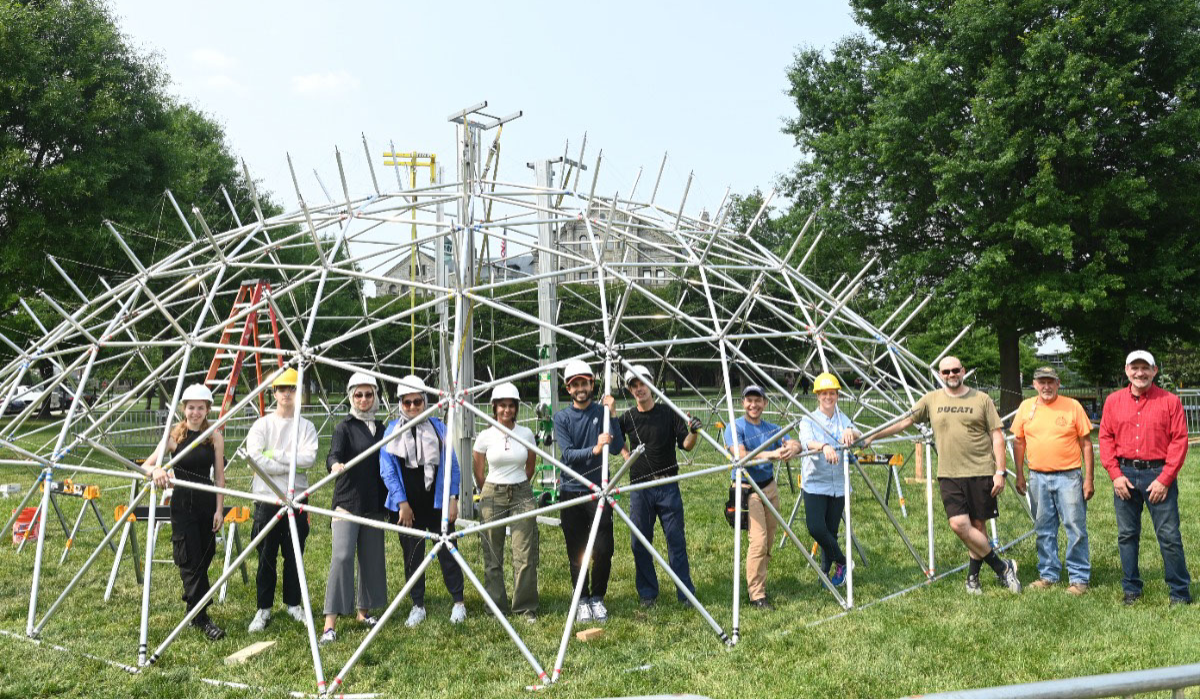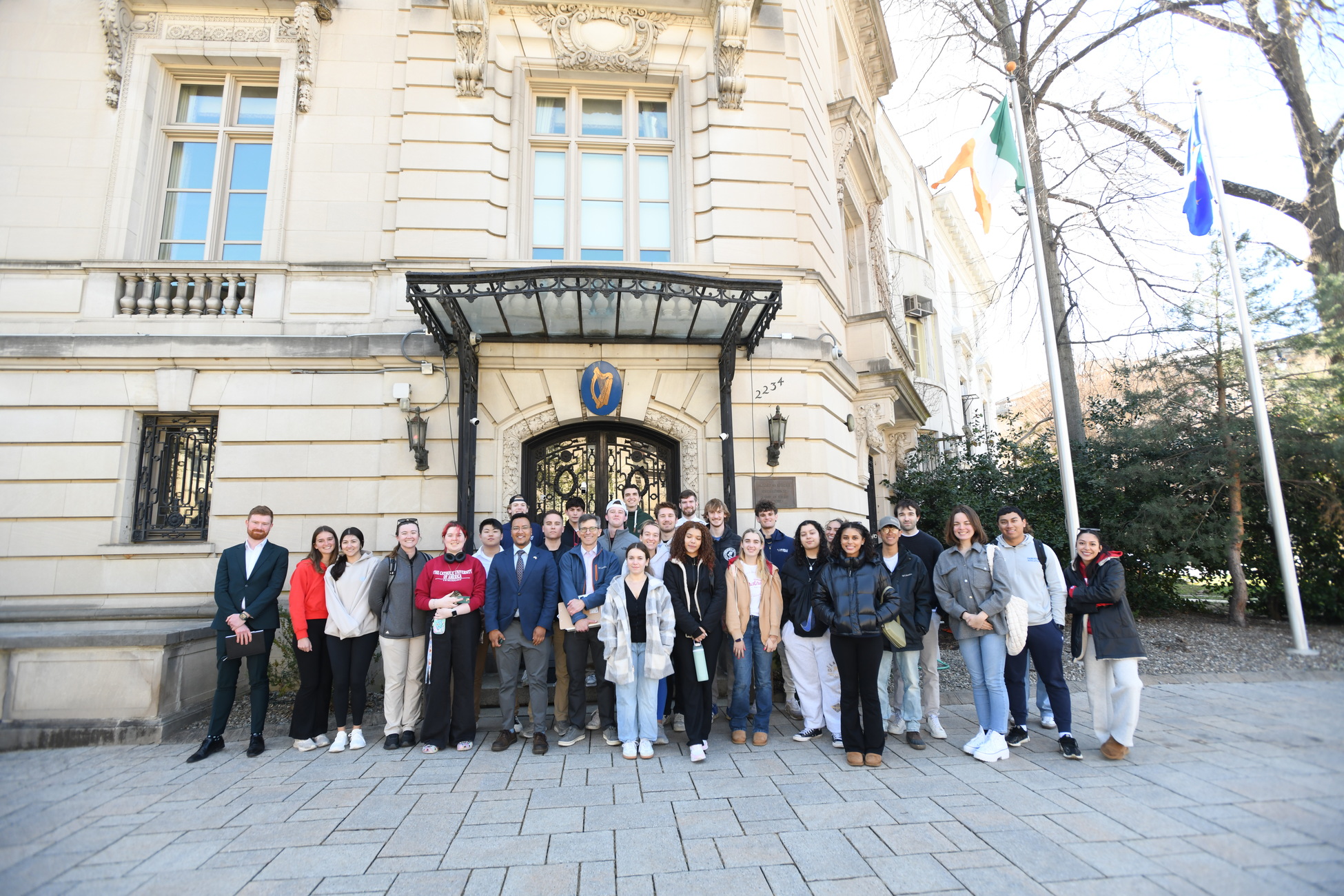North America’s first large-span geodesic dome will be reconstructed within the Smithsonian’s National Museum of American History (NMAH) in collaboration with students and faculty from The Catholic University of America’s School of Architecture and Planning.
The dome will be assembled on-site by museum staff, professors and students from Catholic University July 5, 6 and 7. Visitors will be able to watch students and faculty construct the dome on-site and then walk through North America’s first large-span, self-supporting geodesic dome made of more than 1,000 aluminum struts and sprits. “Weatherbreak” will rise 25 feet high and span 49 feet wide.
Built more than 70 years ago by architect Buckminster Fuller’s student Jeffrey Lindsay, this is the first time the iconic structure will be reassembled since it came into the Smithsonian collections.
The dome was built as a highly stable, efficient, and portable structure that was capable of withstanding extreme climates and is credited with popularizing the geodesic dome. The project, "Reconstructing ‘Weatherbreak’: Geodesic Domes in an Age of Extreme Weather,” will feature exhibit panels on the history of the Fuller dome as well as the role of domes in helping address climate change challenges. Weatherbreak is one of the most significant architectural innovations of the 20th century.
Read about the Weatherbreak efforts by Catholic University students.



